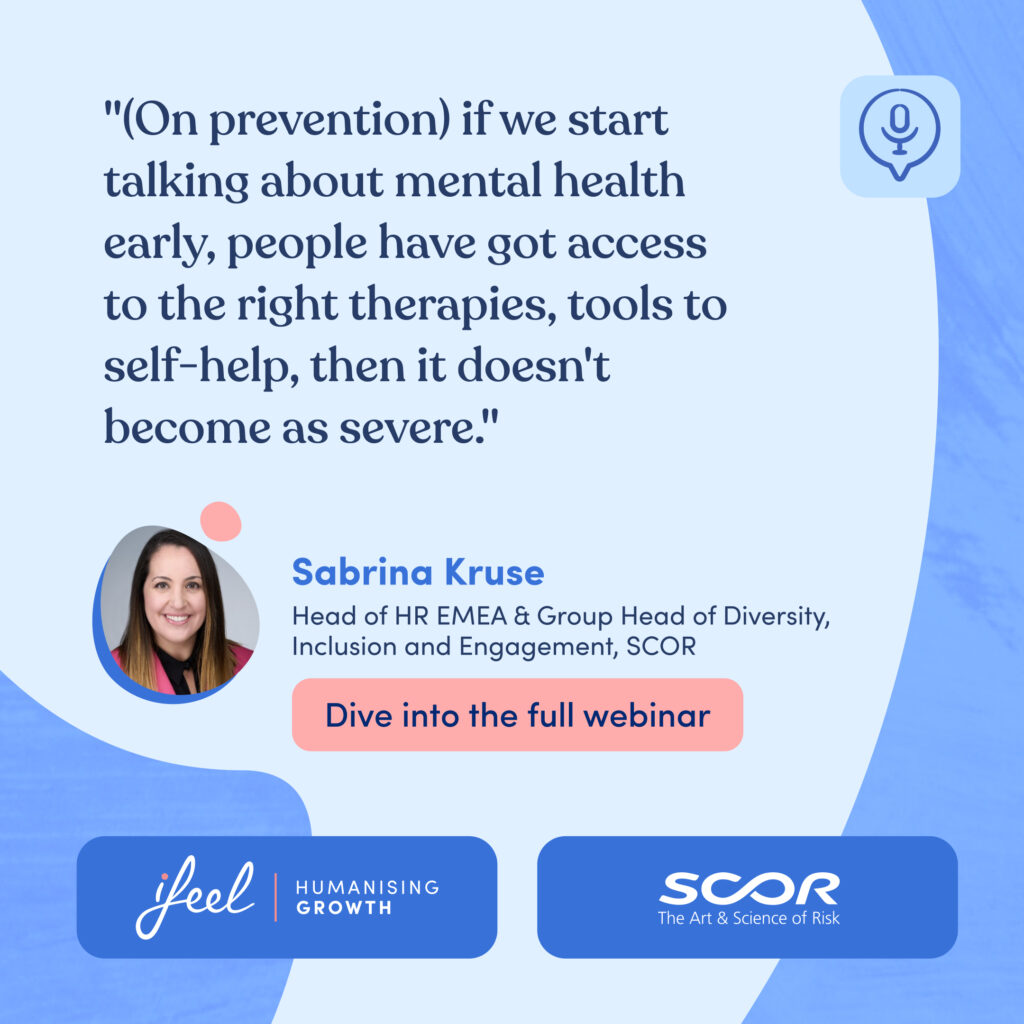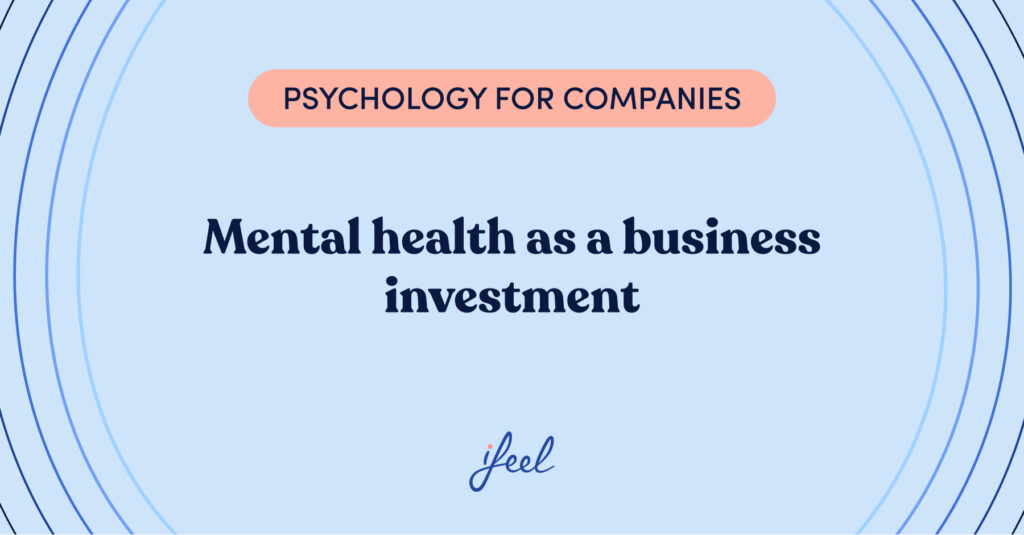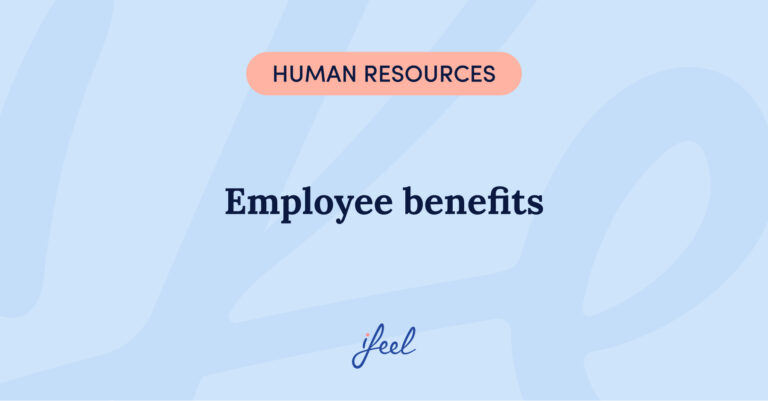Innovation and efficiency are essential to stand out in a constantly evolving corporate world. And, within this fast-paced landscape, organisations often face a critical challenge that often goes unnoticed: the mental health of their employees.
Beyond being a matter of personal well-being, mental health as a business investment has been shown to be a strategic factor that can directly impact productivity, talent retention, and financial results.
However, despite its importance, many organisations still view mental health initiatives as merely an expense, ignoring their potential as an investment with a tangible return. This limited approach not only underestimates the benefits these strategies can bring to corporate culture, but also overlooks the hidden costs of absenteeism, presenteeism and staff turnover.
In this article, we will explore why treating mental health as a business investment is not only an ethical necessity but also a strategic decision that can transform organisational performance. We will analyse how implementing effective solutions can reduce costs, increase productivity and strengthen company culture.
The hidden cost of ignoring mental health
When companies fail to prioritise the mental health of their employees, the consequences go far beyond simple individual discomfort. Mental health issues translate into prolonged absences, decreased performance and, in many cases, the loss of key talent.
These effects, although not always visible on the balance sheet, have a direct impact on operating costs and the organisation’s ability to achieve its strategic objectives. Ignoring this aspect not only affects individuals, but also compromises the sustainability of the business.
In fact, the World Health Organisation (WHO) estimates that mental health problems cost the global economy approximately £1 trillion annually in lost productivity.
This financial impact comes mainly from two key areas:
- Absenteeism: Employees facing mental health issues are 37% more likely to be absent from work.
- Presenteeism: Even when they are physically present, their performance may be affected, leading to invisible but significant losses.
To better understand this impact, let’s look at a comparison:
| Factor | Cost per employee | Impact on the company |
|---|---|---|
| Long-term absenteeism | €3,000 – €5,000/year | Direct loss of productivity |
| Staff turnover | €15,000 – €50,000 | Recruitment and training costs |
| Mental health issues | €1,000 – €3,000/year | Loss due to presenteeism |
As can be seen, mental health issues not only affect employees, but also represent a significant financial risk for companies.
In contrast, according to reports, companies that invest in mental health achieve an average return on investment (ROI) of 4 to 1, thanks to improved productivity and reduced costs associated with absenteeism and turnover.
The ROI of mental health as a business investment
For this reason, addressing mental health as a business investment is not only a matter of social responsibility, but also a strategic decision that directly impacts financial results.
Investing in effective mental health programmes, such as those offered by ifeel, allows companies to transform a challenge into an opportunity to improve their organisational performance. Thanks to its combination of advanced technology and clinical expertise, ifeel helps companies reduce costs, optimise resources and strengthen their corporate culture.
Tangible benefits for companies
Reduced costs due to absenteeism
Mental health issues are responsible for approximately 30% of sick leave in companies. Implementing specialised programmes can reduce this figure by 15% to 25%, which translates into significant savings in operating costs and greater stability in teams.
Increased productivity
Employees who have adequate emotional support are not only more resilient, but also show greater commitment and performance in their tasks. This translates into a direct improvement in the overall productivity of the organisation.
Reduced staff turnover
Lack of emotional support at work is one of the main reasons why employees decide to leave their jobs. Mental health as a business investment, such as ifeel, not only improves the employee experience, but also increases talent retention, reducing the high costs associated with replacing and training new employees.
Impact on organisational culture
Beyond the financial benefits, investing in mental health as a business investment transforms corporate culture. As Lisa Porres, Chief People Officer at Spotahome, points out:
‘Emotional well-being is essential for fostering creativity and determination, which are vital in any competitive work environment.’
Companies that prioritise mental health as a business investment are not only more attractive to talent, but also create an environment where employees feel valued and supported. This creates a ripple effect that positively impacts collaboration, innovation and long-term success.
It is therefore worth noting that investing in mental health as a business investment is not a luxury, but a strategic necessity which, with solutions such as those offered by ifeel, provides a measurable and sustainable return for both employees and the organisation.
ifeel vs. employee assistance programmes (EAPs): which solution is best for your company?
Once companies see mental health as a business investment, it is time to decide which solution will be the best option for their organisation. This is when they are often faced with a key decision: opt for a traditional Employee Assistance Programme (EAP) or choose innovative solutions such as ifeel.
Although both approaches seek to improve mental health in the workplace, their characteristics, scope and impact are significantly different.
Discover all the facts in our comparative study between ifeel and EAPs. Download it now and explore how ifeel can transform mental health in your organisation.
Main differences between ifeel and EAP
| Aspect | ifeel | Traditional EAP |
|---|---|---|
| Access | Available 24/7, from anywhere, even without a corporate email address | Limited hours and more complex access, usually by phone |
| Response | Initial diagnosis in less than 24 hours and contact with a therapist in less than 20 minutes | Long waiting time to assign a professional |
| Personalisation | Action plans tailored to each employee’s risk level | Generic approach, with no segmentation by risk levels |
| Technology and scalability | Use of AI and data to identify risks and optimise interventions | Traditional models with little scalability |
| Financial impact | Reduced costs due to absenteeism and turnover, with measurable ROI | Difficult to measure the direct financial impact |
| Confidentiality | Safe and anonymous space, with strict privacy protocols | Perception of lower confidentiality due to the traditional format |
| Preventive approach | Workshops, psychoeducational content and preventive strategies | Mainly reactive, focused on solving specific problems |
Why is ifeel the ultimate solution?
Research has shown that, although Employee Assistance Programmes have been the solution chosen by many companies over the years, they have multiple limitations that hinder their accessibility, customisation and ability to generate a measurable impact on employee well-being.
ifeel, on the other hand, emerges as an innovative solution that combines advanced technology, rapid response and a preventive approach, offering tangible results for both employees and organisations, thanks to:
1. Speed and efficiency
While traditional EAPs can take days or weeks to assign a professional, ifeel guarantees that employees receive care in less than 24 hours. This is crucial to prevent mental health issues from becoming serious crises.
2. Data-driven approach
ifeel uses predictive analytics and dynamic dashboards to identify risks in real time, enabling companies to make informed and proactive decisions. EAPs, on the other hand, lack advanced tools to measure impact or anticipate problems.
3. Global scalability
Available in more than 30 countries and 25 languages, ifeel is ideal for multinational companies that need a flexible, global solution. EAPs are often limited to specific regions and cannot always adapt to diverse and dispersed teams.
4. Measurable impact
ifeel not only improves employee well-being, but also provides clear metrics on cost reductions from absenteeism and turnover. This allows companies to calculate a tangible ROI, something that traditional EAPs do not usually provide.
In the words of Virginia Grenón Lobato, Global Head of Human Resources Operations at Cabify:
‘Finding a partner like ifeel, which adds value wherever our team is and at any time, has been a great discovery.’
If your company is looking for a solution that combines accessibility, personalisation and measurable results, ifeel is the ideal choice. EAPs may have been useful in the past, but in a global and dynamic business environment, companies need modern tools that really make a difference.

Conclusion: mental health, the best asset for business success
Mental health as a business investment is not just a trend; it is a necessity. Companies like ifeel are leading the way by offering solutions that not only improve employee well-being but also have a positive impact on financial results.
If your company hasn’t taken the plunge yet, now is the time. Mental health as a business investment is not an expense, it’s a strategic investment with a guaranteed return.
Ready to transform your organisation? Discover how ifeel can help you make a difference.











